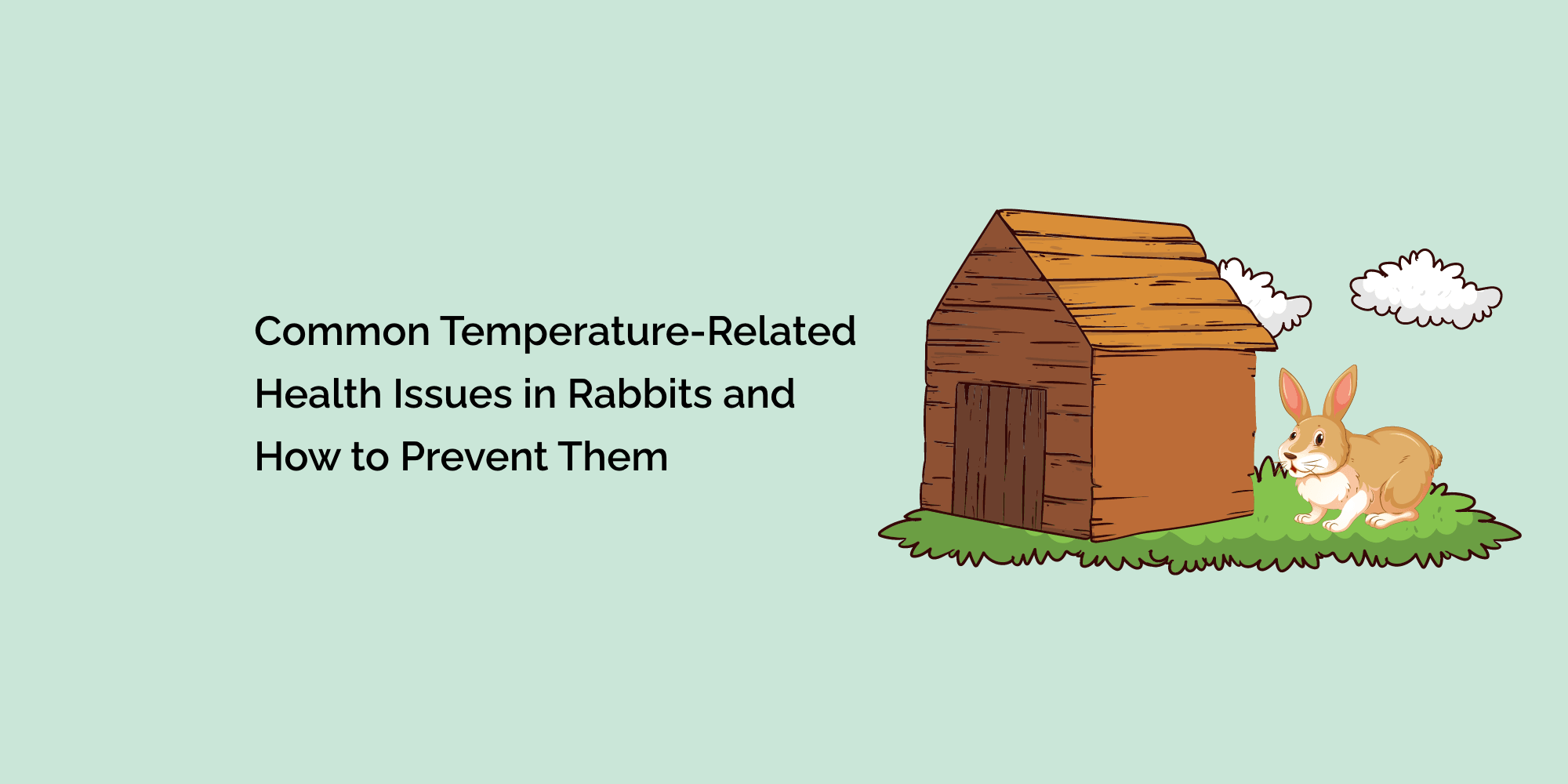As responsible rabbit owners, it is crucial to be aware of the impact of temperature on the health and well-being of these adorable and delicate creatures. Rabbits are highly sensitive to temperature extremes, and exposure to unsuitable conditions can lead to various health issues.
In this comprehensive blog, we will delve into the common temperature-related health problems that rabbits may face and explore effective preventive measures to ensure their comfort and longevity.
Understanding the Temperature Tolerance of Rabbits
The Physiology of Rabbits and Temperature Regulation
- Explanation of the unique physiological traits of rabbits that influence their temperature tolerance.
- How rabbits regulate their body temperature through their ears and fur.
- Factors that make rabbits more susceptible to heat stress and hypothermia.
Ideal Temperature Range for Rabbits
- Defining the optimal temperature range for rabbits in different environments (indoor and outdoor).
- Exploring the impacts of temperature extremes on rabbits' health.
- The importance of maintaining the right temperature for different life stages of rabbits (young, adult, and senior).
Common Temperature-Related Health Issues
Heat Stress and Heatstroke
- Understanding the signs and symptoms of heat stress in rabbits, including excessive panting and lethargy.
- Dangers of heatstroke and its potentially fatal consequences.
- Identifying high-risk situations and environments that may lead to heat stress.
Hypothermia
- Recognizing the signs of hypothermia in rabbits, such as shivering and huddling.
- Understanding the consequences of prolonged exposure to low temperatures.
- Identifying vulnerable rabbits and ways to protect them during colder months.
Dehydration
- Exploring the connection between temperature and hydration needs in rabbits.
- The importance of providing fresh water and monitoring water intake during extreme weather conditions.
- Preventive measures to avoid dehydration and its impact on overall health.
Preventive Measures for Temperature-Related Health Issues
Creating the Optimal Environment
- Tips for maintaining the ideal temperature range in indoor and outdoor rabbit habitats.
- Importance of proper ventilation, insulation, and shade provision to regulate temperature.
- Adapting the living environment to different seasons and climates.
Providing Adequate Hydration and Nutrition
- Guidelines for ensuring rabbits receive enough water and a balanced diet to support their well-being in different weather conditions.
- Seasonal variations in dietary requirements and the importance of providing fresh, nutritious food.
Monitoring Rabbit Behavior and Health
- Understanding the behavioral indicators of temperature discomfort in rabbits.
- Establishing a routine for regular health checks and temperature assessments.
- The role of veterinarians in guiding rabbit care during extreme temperatures.
Special Considerations for Outdoor Rabbits
Shelter and Protection from the Elements
- Constructing a weather-resistant shelter for outdoor rabbits.
- Ensuring protection from rain, wind, and harsh sunlight.
- Preparing for extreme weather events and natural disasters.
Safe Exercise and Playtime
- Balancing outdoor playtime with weather conditions.
- Tips for creating a safe and temperature-appropriate play area for rabbits.
Educating Rabbit Owners and Encouraging Responsible Care
Spreading Awareness about Temperature-Related Health Issues
- The role of education in preventing temperature-related health problems in rabbits.
- Collaborating with local animal welfare organizations to promote responsible rabbit care.
Understanding Individual Rabbit Needs
- Acknowledging that each rabbit is unique and may have different temperature tolerances.
- Importance of observing and responding to individual needs accordingly.
Conclusion
Temperature-related health issues are a significant concern for rabbit owners, but with proper understanding and preventive measures, these issues can be mitigated. By providing the right environment, nutrition, and care, we can ensure the comfort and well-being of our beloved furry friends.
Responsible rabbit ownership involves being proactive, vigilant, and responsive to their needs, especially during temperature extremes. By working together and spreading awareness, we can create a community that prioritizes the health and happiness of our delightful rabbit companions.








